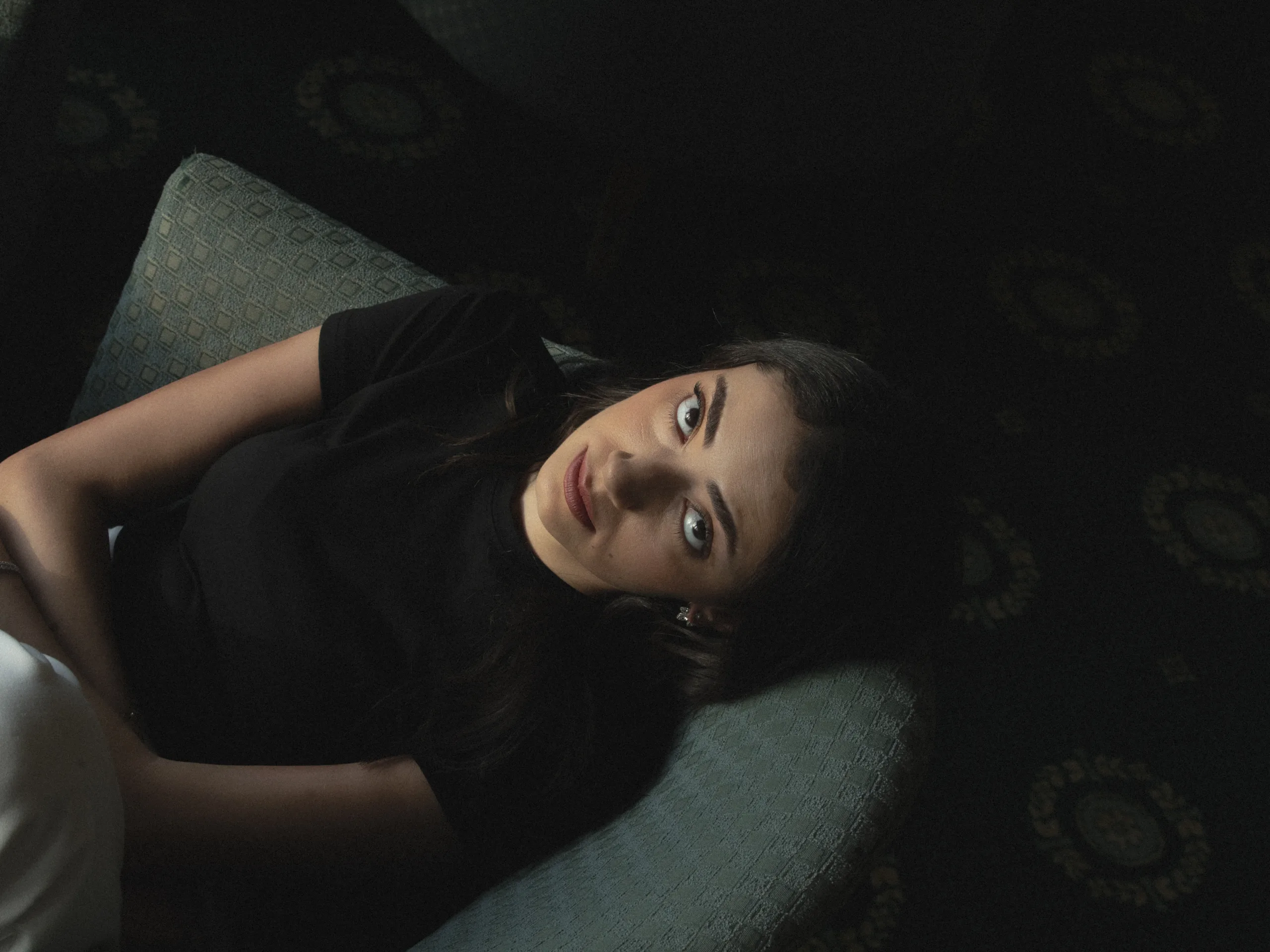 Posted in
Feature, Plestia
Posted in
Feature, Plestia
Plestia Alaqad in conversation with Hameem Khan on dissonance and duty
Text Hameem Khan | Photography Omar Sha3
“It’s harder to watch the genocide from abroad,” says Plestia Alaqad, a 23-year-old Palestinian journalist whose life was irreversibly changed on October 7, 2023, although she admits it feels selfish to say so.
“When you’re in Gaza, in a genocide, as a journalist, at least you’re reporting, you’re doing something, you’re trying to help. It’s collective punishment: something we’re used to since we were young. For example, if a student misbehaved in class, the whole class wouldn’t go on the field trip. So when I was in Gaza, I felt I was part of that punishment. But when you’re watching what’s happening from outside Gaza, it’s different. You know you’re safe, you know you’re alive, you have access to food, while your friends, loved ones, relatives are starving to death. You know they can be killed any minute. And no matter how much you try to raise awareness or report, it still feels like it’s not enough.” This is how my conversation with Plestia started.
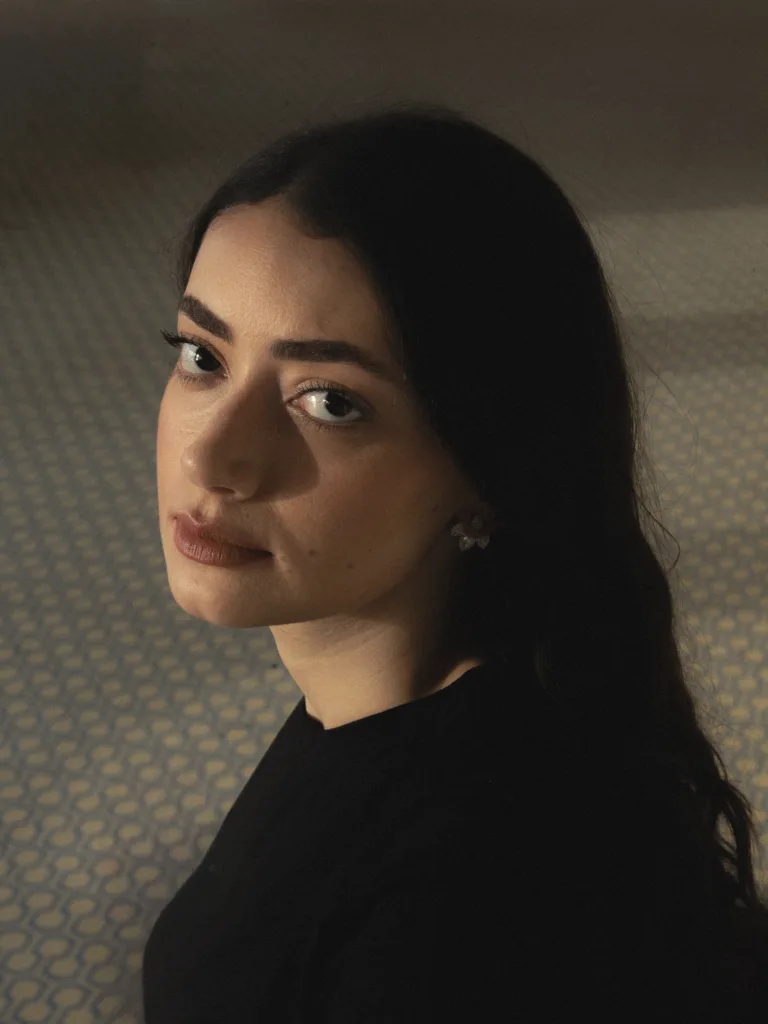
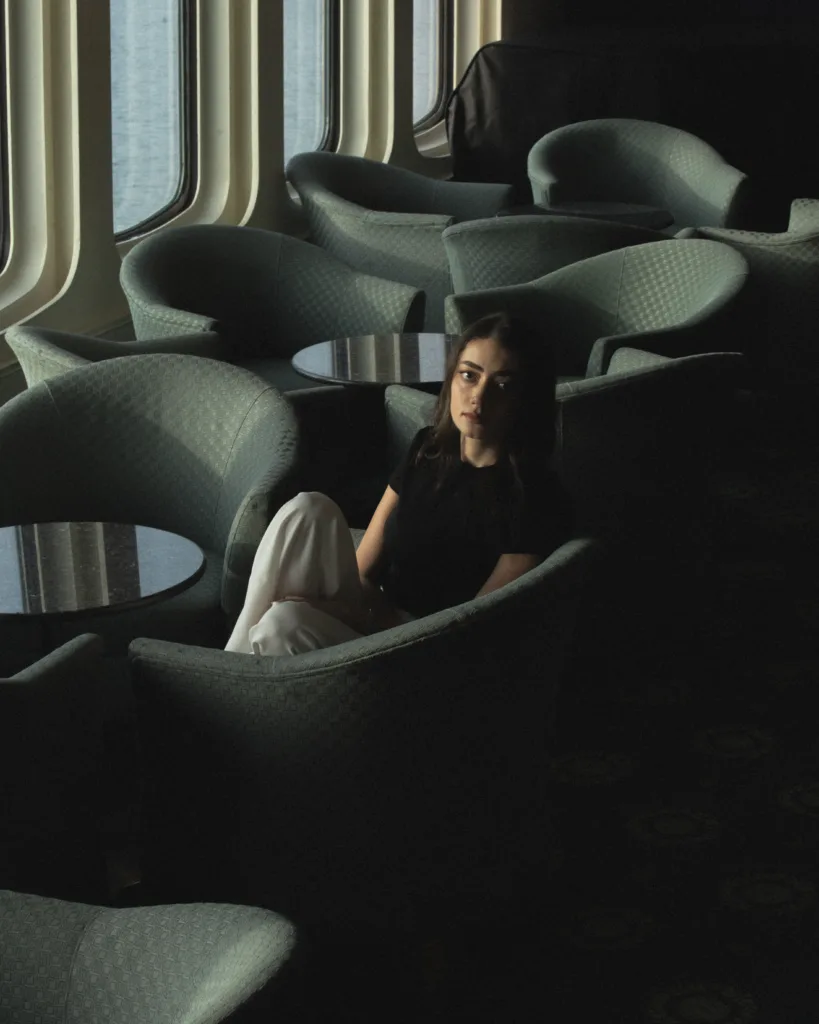
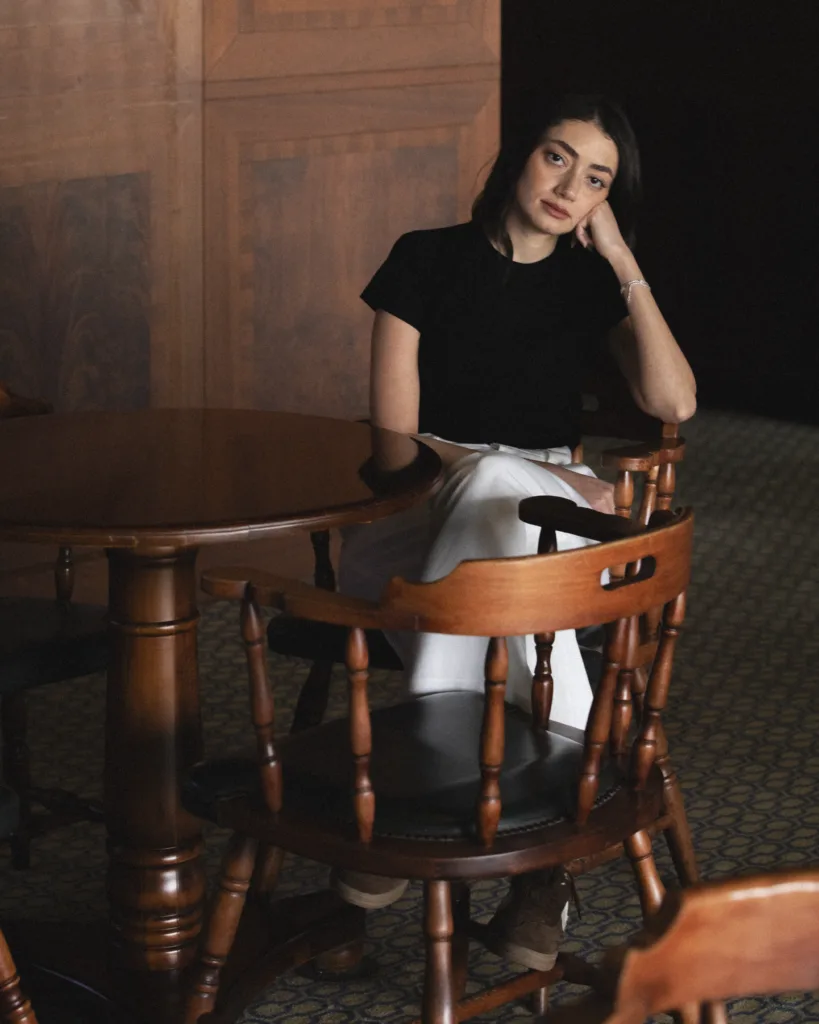
What she described isn’t mere survivor’s guilt, but an incredibly layered weight that includes displacement guilt, secondary trauma, and the moral injury of being unable to intervene. Yet amidst this, there was a quiet resolve in her voice, the same resolve I see time and time again in Palestinian voices.
The jarring dissonance she spoke of, between survival and guilt, between memory and exile — is not hers alone. Along with Plestia, it also defines the daily reality of Palestinians in Gaza. To live there is to oscillate constantly between mourning and endurance, between the grief of what’s been lost and the necessity of carrying on. For those abroad, safety itself becomes another source of pain, and for those inside, even the smallest act of survival can feel like a betrayal to those who didn’t make it through the night.

When I asked about home, Plestia reiterated that no place will ever feel like home except Gaza.
“Outside, every visa renewal, every police check reminds you: you are not one of them. This is not your home.” She described a very specific kind of hopelessness she runs into in every new city: searching neighbourhoods for Palestinian cafes, bookstores, restaurants, anything that might feel like a piece of home. “It makes me feel desperate in a way, how we’re always searching for Palestine. It’s also beautiful, because you can find a piece of home everywhere. Still, it can feel hopeless. We’ll never fully belong.”
This made me think. Decades of displacement don’t stop at the private self. They seep further, until they permeate the work too. Between reporting a genocide in real time, often with nothing but a phone signal and their lives on the line, the Palestinian journalists of this generation are the first of their kind. I asked Plestia how the genocide has affected her voice as a journalist, and she was clear that for her this is more than just a career, it’s now a purpose. “Journalism is powerful. Journalism shapes the narrative, and narrative shapes the world. If you want to be part of that change, you have to report with justice. Honour the stories. Honour the people.”
As time goes by, the responsibility is only expanded. The task of translating what is happening within Palestine, as well as the urgency, grows heavier with time. Every day, journalism is treated more like a crime, even though killing journalists is what the world once understood to be the crime. More than 269 have already been killed, and international reporters remain unable to enter. Against that backdrop, the weight falls on Palestinians outside, who are both witness and bridge. “That makes us journalists outside of Gaza carry more responsibility to keep reporting, to be the voice of the voiceless.”

Amidst this conversation, it felt necessary to address the elephant in the room: the brutal paradox of Western coverage. The closer a Palestinian journalist is to a story, the less the West is willing to accept that story as truth. Lived experience for Palestinians is framed as bias, and proximity becomes disqualifying. In contrast, distant stories from outsiders get treated with respect and credibility. Plestia has seen this double standard firsthand. “Western media will always find it more powerful for an Israeli person to support Palestine than for a Palestinian to do the same. When Palestinians talk, it comes off as if we’re biased. But when Israelis support Israel, it comes off as victimhood. But it teaches me a lesson. We don’t need to beg Western media. We need to strengthen outlets already telling the truth: the independent media, Middle Eastern media. That’s where our energy should go.”
If the paradox of Western journalism is that proximity undermines credibility, the paradox of Western representation of Palestinians is even more stark: Palestinians are most visible in death. The global stage tends to acknowledge them as martyrs, not as people who lived full lives, carried stories, and created meaning long before their names appeared in obituaries. This erasure is unacceptable.
“If there’s one message I want repeated, it’s this: know the names of Palestinian people, not only the martyrs,” Plestia says. Her words are a reminder that representing Palestinians truthfully means honouring them in their entirety: honouring their courage, their insistence on dignity even when dignity is denied; honouring the students who graduated in tears after becoming orphans; honouring the mothers who have rebuilt homes again and again; honouring the families who stayed in Palestine until their last breath. This is who Palestinians are – honourable people.
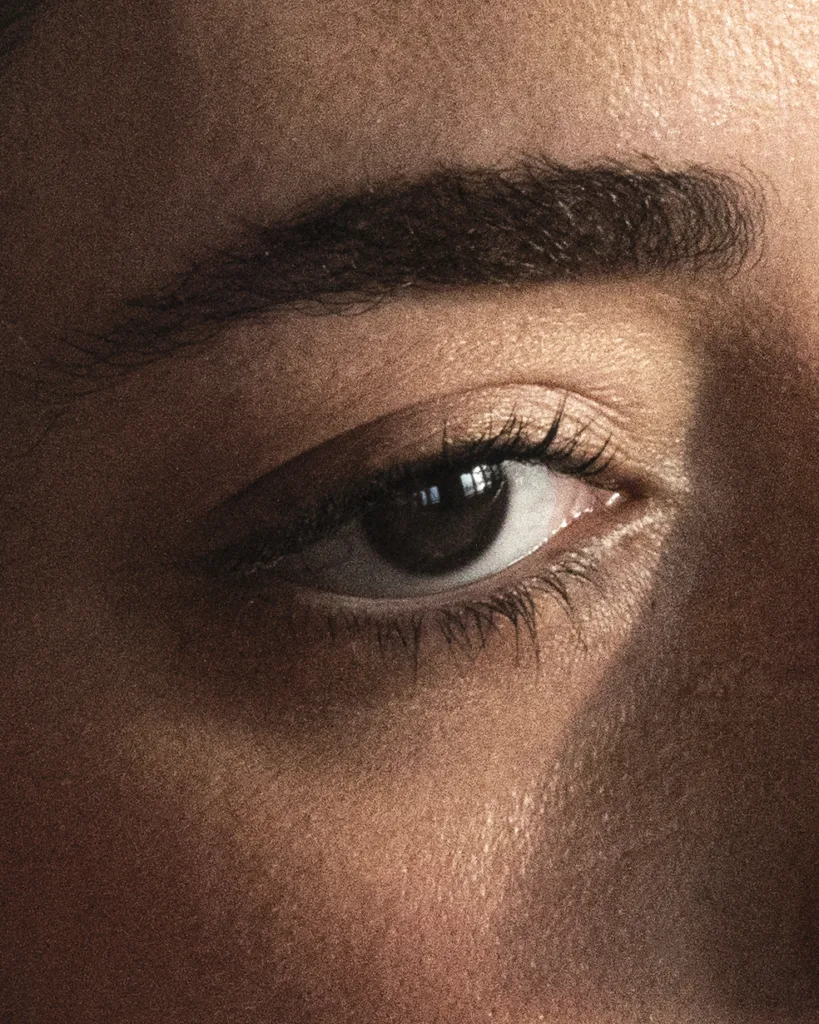
Toward the end of our conversation, I asked Plestia about the future. What does she look forward to, what gives her hope?
“There were many days when I thought there would be no tomorrow. Now there are many tomorrows, and it’s overwhelming. As a Palestinian, I never had the privilege to plan for tomorrow. Now I do, and I don’t know what to do with it. But I hope I’ll do something good.”
Having tomorrows, and the chance to plan for them, is something every Palestinian deserves. There is no roadmap for surviving a genocide, let alone surviving one in public. But Plestia is building one.
